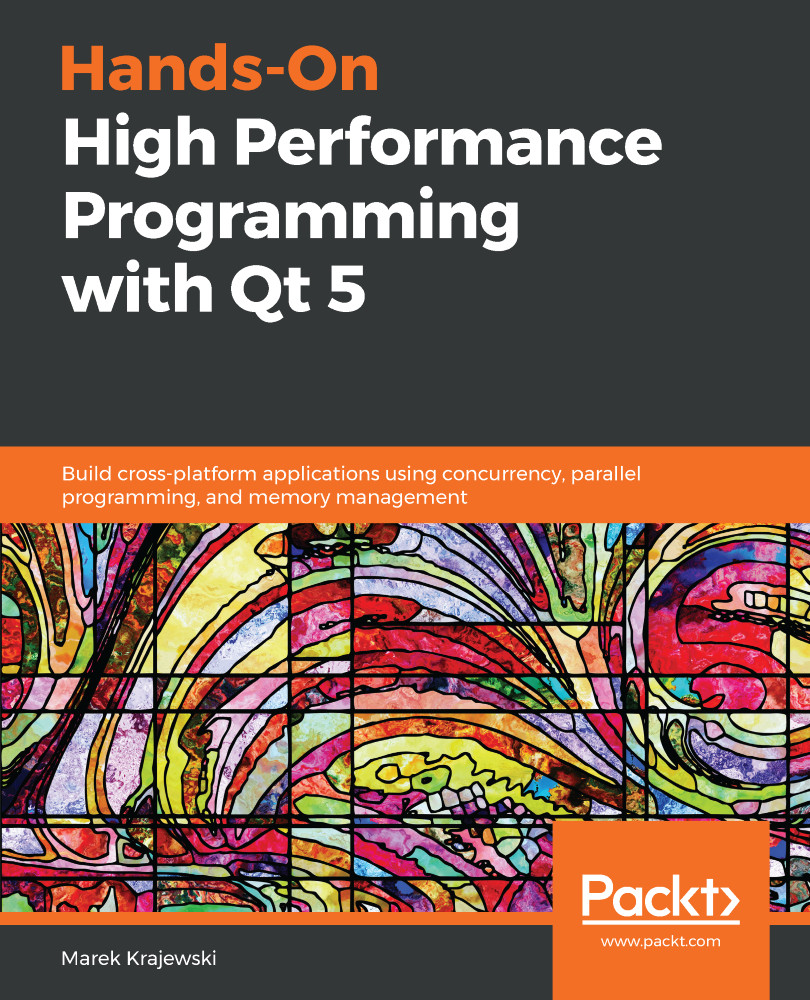- When would you deem a simple linear search to be a justifiable choice?
For a couple of tens of items, it is totally OK to use a linear algorithm. But be sure that you'll never have to scale this piece of code! - How many items do you think can be shown without problems in a standard Qt's model-view setup?
Model-view classes will scale up to a couple of hundred items. For very big models, you have to resort to manual optimizations. - What could be meant by the Tower of Babel performance anti-pattern?
That colorful name describes the situation where your program burns CPU power by constantly transforming the same data among several formats. This could be a real program in bigger systems in the enterprise programming, and you'd probably never do it in a Qt program, would you? However, I liked its name. - Your program suffers under a performance problem. How would...
-
Book Overview & Buying

-
Table Of Contents

Hands-On High Performance Programming with Qt 5
By :

Hands-On High Performance Programming with Qt 5
By:
Overview of this book
Achieving efficient code through performance tuning is one of the key challenges faced by many programmers. This book looks at Qt programming from a performance perspective. You'll explore the performance problems encountered when using the Qt framework and means and ways to resolve them and optimize performance.
The book highlights performance improvements and new features released in Qt 5.9, Qt 5.11, and 5.12 (LTE). You'll master general computer performance best practices and tools, which can help you identify the reasons behind low performance, and the most common performance pitfalls experienced when using the Qt framework. In the following chapters, you’ll explore multithreading and asynchronous programming with C++ and Qt and learn the importance and efficient use of data structures. You'll also get the opportunity to work through techniques such as memory management and design guidelines, which are essential to improve application performance. Comprehensive sections that cover all these concepts will prepare you for gaining hands-on experience of some of Qt's most exciting application fields - the mobile and embedded development domains.
By the end of this book, you'll be ready to build Qt applications that are more efficient, concurrent, and performance-oriented in nature
Table of Contents (14 chapters)
Preface
 Free Chapter
Free Chapter
Understanding Performant Programs
Profiling to Find Bottlenecks
Deep Dive into C++ and Performance
Using Data Structures and Algorithms Efficiently
An In-Depth Guide to Concurrency and Multithreading
Performance Failures and How to Overcome Them
Understanding I/O Performance and Overcoming Related Problems
Optimizing Graphical Performance
Optimizing Network Performance
Qt Performance on Embedded and Mobile Platforms
Testing and Deploying Qt Applications
Assessments
Other Books You May Enjoy
